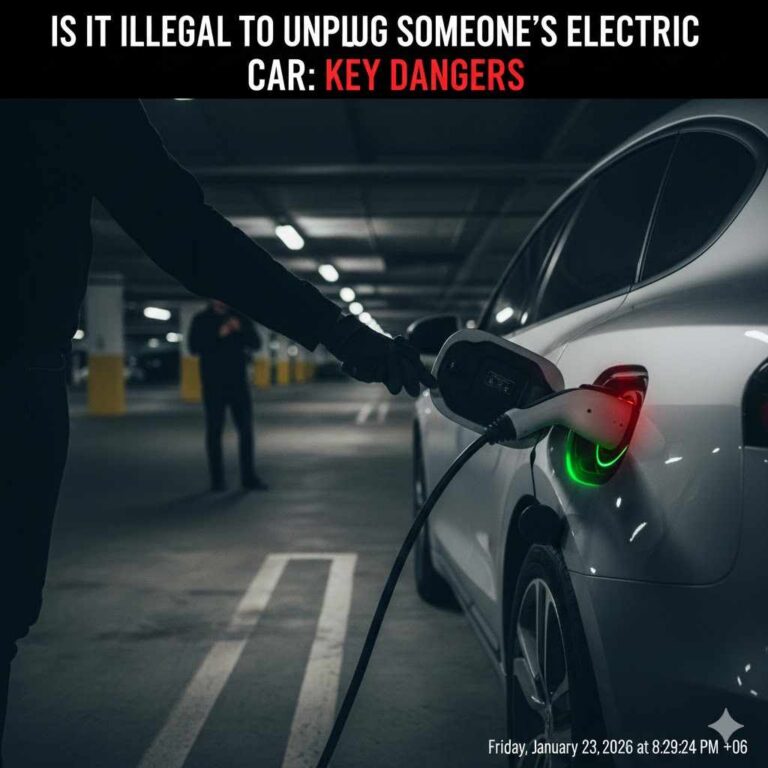Can a Car Overheat from Low Oil? 5 Crucial Signs to Watch Out For
Yes, a car can overheat due to low oil levels. This can cause excessive friction between the engine components, leading to overheating.
Low oil levels in a car can have detrimental effects on its performance and overall health. It is essential to understand that the engine relies on oil to lubricate its many moving parts, which reduces friction and prevents damage. When oil levels drop significantly, one of the consequences is a potential overheating issue.
This occurs because the insufficient oil fails to adequately lubricate the engine components, resulting in increased friction and heat generation. Consequently, the engine can overheat, leading to potential damage and a compromised driving experience. It is crucial to regularly monitor oil levels and maintain proper maintenance to prevent this issue from disrupting your vehicle’s performance.
Can A Car Overheat From Low Oil?
Low oil in a car can lead to overheating, as the oil’s primary role is to lubricate and cool the engine components. Without enough oil, the engine heats up quickly and can eventually overheat, causing major damage.
Understanding The Role Of Oil In Car Cooling
Car engines are complex systems with various components working together to ensure smooth operations. One important aspect of engine performance is maintaining optimal temperature levels. Heat is generated as the engine runs, and without proper cooling mechanisms, it can lead to severe damage. This is where the role of oil in car cooling becomes crucial.
Oil acts as a lubricant, reducing friction and heat generated between moving engine parts. Moreover, oil helps to dissipate excessive heat, preventing the engine from overheating. It circulates throughout the engine, absorbing heat and transferring it away from critical components, helping them function efficiently. In essence, oil is the lifeblood of the engine, ensuring it stays cool and operates smoothly.
Why Low Oil Levels Can Cause Overheating
While oil plays a significant role in cooling the car engine, low oil levels can spell trouble and potentially lead to overheating. When the oil level drops below the recommended range, several issues arise that can disrupt the cooling process:
Lack Of Lubrication:
When the oil level is insufficient, it fails to lubricate the moving parts effectively. As a result, friction between the parts increases, generating excessive heat. Without proper lubrication, the engine components wear down faster, leading to increased heat production and potential overheating.
Inadequate Heat Dissipation:
Low oil levels reduce the amount of oil available for heat absorption and dissipation. As a consequence, the engine is unable to effectively regulate its temperature, and the excess heat accumulates, raising the risk of overheating. The lack of sufficient oil prevents the engine from efficiently transferring heat away from critical components, putting them at risk of damage.
Increased Risk Of Engine Seizure:
In extreme cases, low oil levels can lead to engine seizures. Without proper lubrication and cooling, the engine’s internal components can seize, causing irreparable damage and even rendering the engine inoperable. Engine seizures are often a result of prolonged overheating due to low oil levels, emphasizing the importance of regular maintenance and monitoring oil levels.
To summarize, oil not only acts as a lubricant but also plays a crucial role in cooling the car engine. Low oil levels disrupt the cooling process, leading to inadequate lubrication, reduced heat dissipation, and an increased risk of engine seizure. To avoid such issues, it is essential to regularly check oil levels and top them up when necessary, ensuring your car’s engine stays cool and performs optimally.
5 Crucial Signs To Watch Out For
Car overheating can be a result of low oil levels. Look out for signs like smoke from the engine, high temperature gauge, strange smells, or engine misfiring. Regularly checking your oil levels can prevent this issue and ensure smooth driving.
When it comes to car maintenance, keeping an eye on the oil level is essential. Low oil in your car’s engine can lead to a range of problems, including overheating. In this blog post, we will discuss five crucial signs that indicate your car may be overheating due to low oil. By recognizing these signs early on, you can prevent further damage to your engine and keep your vehicle running smoothly. Let’s dive in!
1. Rising Temperature Gauge:
One of the first signs to watch out for is a rising temperature gauge on your dashboard. When the engine doesn’t have enough oil, it loses its lubricating properties, causing friction and heat buildup. As a result, your car’s temperature gauge may start climbing higher than usual, indicating that your engine is struggling to cool down. Ignoring this warning sign can lead to severe engine damage, so it’s crucial to address the issue promptly.
2. Visible Smoke Or Steam:
Another unmistakable sign that your car is overheating due to low oil is the presence of visible smoke or steam coming from the engine compartment. When oil levels are low, the engine components can become excessively hot, causing the oil that remains to burn. This burning oil produces smoke or steam, which may escape through the hood of your car. If you notice this happening, it’s a clear indication that your engine needs immediate attention.
3. Weird Engine Noises:
When your car is low on oil, the engine’s moving parts lack the necessary lubrication, leading to increased friction. This friction can result in strange noises coming from the engine, such as knocking, ticking, or grinding sounds. These noises should never be ignored, as they indicate potential damage to vital engine components. To prevent further issues, it’s essential to address these abnormal engine sounds promptly.
4. Loss Of Power:
Low oil levels can also cause your car to experience a noticeable loss of power. As the engine struggles to function without sufficient lubrication, its performance and efficiency are compromised. You may notice a decrease in acceleration, difficulty maintaining speed, or a general lack of power when driving. If you encounter these issues, it’s crucial to have your car checked by a professional to avoid any further problems.
5. Engine Shutdown:
Perhaps the most severe consequence of low oil leading to overheating is an engine shutdown. When the engine temperature rises to a critical level, the car’s computer system may shut down the engine as a safety measure. This automatic shutdown prevents further damage but leaves you stranded on the side of the road. If you find yourself in this situation, be sure to contact a roadside assistance service for immediate help.
In conclusion, low oil levels can indeed cause your car to overheat, resulting in various warning signs. The rising temperature gauge, visible smoke or steam, weird engine noises, loss of power, and engine shutdown are all crucial signs to watch out for. By paying attention to these indicators and taking prompt action, you can prevent costly engine damage and keep your car running smoothly for miles to come. Remember, regular oil checks and maintenance are key to maintaining your car’s performance and longevity.
Conclusion
Neglecting to maintain adequate oil levels in your car can have dire consequences, including the risk of overheating. Insufficient oil decreases lubrication and causes excess friction, leading to heightened engine temperatures. Regularly checking and replenishing oil levels is crucial for the longevity and proper functioning of your vehicle.
Don’t let something as simple as low oil result in costly repairs or safety hazards. Take charge of your vehicle’s maintenance to ensure smooth and problem-free journeys.






